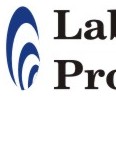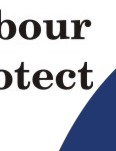 |
 |
 |
 |
 |
|
 |
 |
 |
 |
 |
|
 |
 |
 |
 |
 |
|
 |
 |
 |
 |
 |
|
 |
 |
 |
 |
 |
DISCIPLINARY HEARINGS
Employees may find themselves required to appear in a disciplinary
hearing for alleged misconduct. An employee may be suspended on full pay
pending a hearing especially when the employee’s presence at the
workplace may jeopardize any investigation. The employer initiates a disciplinary hearing with the preparing of a Notice to Attend Disciplinary Hearing, which is than delivered to the employee. It is critical that the charges are correctly formulated in such Notice as the employee can only be expected to prepare and answer the charges set out therein. The employer should give the employee not less than three (3) days notice of the enquiry and the Notice should contain, inter alia, the time, date and venue of the hearing, details of the charges and that the employee is entitled to:
Conducting a Disciplinary Hearing:
Most disciplinary hearings are conducted in a formal yet fair manner and
strict court rules are not applied. The employer should lead
evidence at the hearing. Evidence is submitted to prove or disprove the
events surrounding the misconduct. The employee is than given the
opportunity to respond. The chairperson may ask the parties or any
witnesses questions for clarification.
The chairperson must ask both parties to make submissions on the
appropriate disciplinary sanctions should the employee be found guilty. Any person who is required to determine whether a dismissal for misconduct is fair should consider:
Valildity of a Work Rule/ Legality of Sanction: The validity of a work rule and legality of sanction for infringement thereof should be considered against the following:
(Please Note: Labour legislation is not specific in terms of the steps to follow when conducting a disciplinary enquiry. The above should therefore serve as a guideline in such matters.) Information provided herein is based on documentation available from the CCMA. >> Labour Law >> useful links >> advice >> misconduct >> conciliation |
|
|National Assistance: 0860 LABOUR/ 0860 522687
|
||||
| To join... | ||||
| (the Membership Fee is only R85pm): | ||||
|
||||